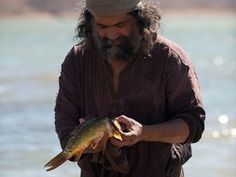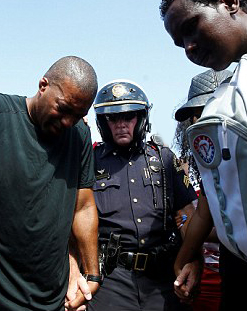Background Passage: Mark 12:28-36, Proverbs 6:16-19, Romans 6:23, Philippians 4:8
One year ago this week, my wife and I traveled to Washington D.C., with our son’s family. We left amid a growing fear of global pandemic none of us really understood. By the time we finished our five days walking the nation’s capital, the World Health Organization label Covid-19 as a “global pandemic.” We arrived home to a vastly different world.
Over the last two weeks my wife and I have both received the first of our two Covid-19 vaccinations and are eagerly awaiting the second. By the end of the month we will be fully immunized against the coronavirus. I don’t know that we expected to feel such a sense of relief after receiving only one dose. I’m hoping the second shot gives us an even greater sense of peace.
I don’t pretend to know exactly how the vaccine works. I’m grateful for the scientists and doctors who do. I do know that the vaccine stimulates the production of white blood cells that attack the virus at the point of infection and block the virus from infecting other cells in my system.
The vaccine helps my body produce T-lymphocytes (memory cells) that hang around in my body in case the same virus tries to return. If that’s not exactly how it works, it is explanation enough for my limited understanding of biology and the human body. I just trust that it works.
I’m not naive. I know every pharmaceutical company rushes to produce a vaccine knowing it will make them a lot of money. Free enterprise. I want to believe though that the scientists and doctors who do the research and develop the countermeasures to defeat a new virus do so because they hate to see the suffering it causes.
Just as those doctors hate a virus that causes physical suffering and death, God hates the sin that causes spiritual suffering and death. Work with me while I try to build something here.
The late Rev. Billy Graham once wrote that God’s love for man prompts him to hate sin with a vengeance. He wrote, “I tell you that God hates sin just as a father hates a rattlesnake that threatens the safety and life of his child…God loathes with a holy abhorrence anything that would hinder our being reconciled to him, wrote Graham.”
So what specifically does God hate? The writer of Proverbs laid out a list of things God detests.
“These six things the Lord hates, yes, seven that are detestable to him: A haughty eye, a lying tongue, hands that shed innocent blood, a heart that devises wicked schemes, feet that are quick to rush into evil, a false witness who pours out lies and a person who stirs up conflict in the community.” (Proverbs 6:16-19)
Consider all these things a spiritual virus that infects the human soul with devastating and eternal results. Then, consider how rampant are each of these sins in our culture and society today. Arrogance. Deceitfulness. Murder. Hatred. Wickedness. Evil. Discord. The Covid-7 of the spirit.
These viruses are at the heart of our cultural dissonance and discontent, making this world more sin sick with each passing day. How eye-opening and frightening would it be to see these sinful attitudes charted on the nightly news. Billions infected. Millions hospitalized. Far too many dying in the sin of their choosing.
It paints a pretty dismal picture.
The good news for the world is that God long ago developed a spiritual vaccine to ward off the spiritually deadly virus of sin. The surest vaccine against the ravages of sin is putting one’s faith and trust in Jesus Christ as Lord.
For the wages of sin is death, but the gift of God is eternal life in Jesus Christ, our Lord.(Romans 6:23)
Here’s how that vaccine works. It changes and protects the heart. Like the T-lymphocytes, God’s spirit stays with us and in us convicting and convincing us of the sin we’re allowing to creep into our hearts.
Paul says the vaccine changes our attitudes and thoughts by attacking those sins that invade our hearts with their positive counterparts. He told the Philippian church:
“Finally, brothers and sisters, whatever is true, whatever is noble, whatever is right, whatever is pure, whatever is lovely, whatever is admirable—if anything is excellent or praiseworthy—think about such things.” (Philippians 4:8)
As much as he detests those notorious sins, don’t you know God loves these things all the more?
For this spiritual vaccine to work best we must take two shots that enable us to change our attitudes and our hearts. It’s a lesson Jesus taught an inquisitive Pharisee. You’ll find the story in Mark 12:28-34.
The teacher of the law came to Jesus, standing in the background as the Sadducees tried their best to trap Jesus with specious arguments and innuendo. Jesus saw right through them. Their questions were insincere, yet Jesus tried to enlighten them to the truth of his teaching. They just didn’t get it. The Pharisee, however, was beginning to see more clearly.
At a break in the conversation, the Pharisee in the background came forward, impressed with Jesus’ words. He had a question of his own. A good question. No intention to trap Jesus. Just a honest effort to pick his brain. To understand.
“Of all the commandments, which is the most important?”
Jesus leaned back against the wall and looked intently into the man’s eyes, gaining a measure of his character and intent. Seeing the honesty in his heart, Jesus answered.
“The most important one is this. ‘Hear, O Israel. The Lord our God; The Lord is one. Love the Lord our God with all your heart and with all your soul and with all your mind and with all your strength.’”
Bam! There it is! Shot 1 of our spiritual vaccination. To avoid those things that God hates, we must inoculate ourselves against them by focusing our love on the God who first loved us. Totally. Completely. With all that we are. In every aspect of life. Without hesitation. Without reservation. Heart. Soul. Mind. Strength.
For we cannot succumb to arrogance if we are loving God with our everything. We cannot easily condone wickedness nor practice it in our own lives, if God is Lord…the boss of our lives. We cannot manipulate the truth, pass along lies as truth; we cannot sow discord among God’s people, if we focus our heart, mind, strength and soul on the will of God in our lives.
Jesus knew that loving God was the first and most critical step. Yet, he knew it was just the beginning. To be fully vaccinated in spirit, however, we can’t stop there. Jesus didn’t. With barely a pause to see if his first statement hit home, Jesus spoke again to the Pharisee.
“The second is this: ‘Love your neighbor as yourself.’ There is no greater commandment than these.”
Shot 2. Just like the medical vaccine, this one has a few side effects. Some of us might feel a l little queasy afterward. It might initially make us uncomfortable.
When we open our hearts to Christ, we find it easy to love God with all we are until we understand that he requires us to love those who disagree with us. Those who look different than us. Those who don’t typically walk in our circle. Yet, his love in us gives us the capacity to open our eyes, to expand our circle to include everyone with whom we come in contact.
Jesus permanently linked together loving God and loving our neighbor, whomever that might be, as the greatest of all his teachings. He knew if we do those things well, sin, our spiritual coronavirus, will never gain a firm foothold on our lives.
That’s the good news of the Bible. As deeply as God hates the sin, he loves the sinner. He sent his son to die so that we might live. The ultimate spiritual vaccine, taken in two inseparable doses, exemplified in our love for God and our love for those around us.
I’m glad I’ve been vaccinated. How about you?


